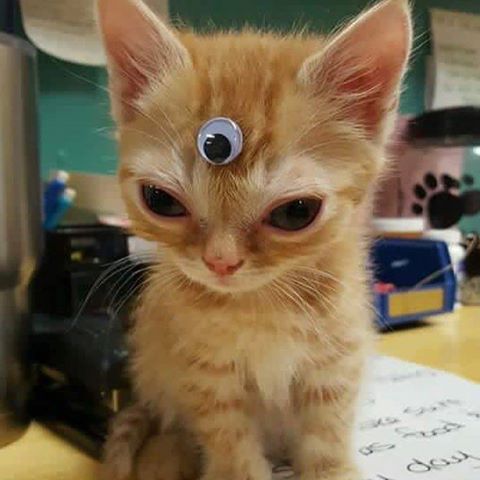- cross-posted to:
- microblogmemes@lemmy.world
- cross-posted to:
- microblogmemes@lemmy.world
I’m reminded of this story

(All credit to SK for actually quitting his habits.)
I used to be far more productive when I was on drugs. The only reason I quit is because of the police harassing me. Now I’m just a shell being addicted to online media. I’m currently waiting until I can get my drivers license back which was taken. Not because I was driving under the influence, but because they simply found some stuff in my saliva. They really want to make the world safe of drugs so now I’m depressed at home trying to pay off my debt to the government because they want to keep me safe? Well it doesn’t make sense but if me being punished and repeatedly being kicked to the ground is the correct way of making the world safe I will do that! Instead of being a happy guy, driving safe on the road and doing some drugs at parties sometimes, I will embrace the nights of insomnia the government forces upon me. At least I can’t drink all of the problems they caused me away, as the only money I have is now considered theirs. What a great society to live in.
Stephen King has also become a shell being addicted to online media, so don’t worry too much.
Fucking police. This guy could have been the next Stephen King!
Sorry to hear, that sucks. I hope you can get back on drugs safely someday.
Thanks. You get it.
So is there a reasonable chance Erdos had ADHD?
It is without a doubt imo
Reading about the guy, I’m convinced he was autistic too. “Diagnosing” historical people is always a bit sus, but I believe this because I know so many autistic nerds in academia who are so much like Erdős. More than that though, I see the ableism in how his narrative is framed. Take for example the following passage from Wikipedia
“He would typically show up at a colleague’s doorstep and announce “my brain is open”, staying long enough to collaborate on a few papers before moving on a few days later. In many cases, he would ask the current collaborator about whom to visit next.”
That quote isn’t one of the bad ones, but other stories about the same thing often frame him turning up at his colleagues’ homes almost like charity, and they emphasised how he had basically never lived independently and struggled with many essential daily living tasks. Except the charitable vibes are diminished by how this is often framed like a trade — housing the genius man-child is an inconvenience and a stress, but ultimately worth it for the ability to bask in his genius and collaborate. It can reduce Erdős down to a 2D character, and adds a weirdly transactional vibe to what is better understood as a community, separated by geography but united by love of maths, supporting each other.
Maybe it’s because I’ve known people like Erdős — weird people who you remember forever because if anyone deserves the label “genius”, they do — but also, they’re just people who have some things they struggle with, and plenty of stuff that they can do, but prefer not to. Hell, I even have one of them crashing on my floor right now, while he’s between homes.
Do ADHD meds enhance creativity too? I thought it was just focus.
They don’t enhance creativity but when you take them, instead of sitting there thinking/stressing about how you are gonna do your creative endeavor, you just do it. It allows you to act on you creative urges and allows you to formulate them into full concepts rather than jumping from one idea to the next.
Imagine you want to write a paper, you have this idea you desperately need to write down, not just to share it with others but also to help yourself fully understand the idea you have but instead of writing this personally important paper you instead sit there and stress about the action of writing for so long that you lose energy and motivation despite never writing a single word. For so long that you lose sight of that original glorious idea and if you eventually write that paper it feels like an utter dissapointment. It took so much damn energy just to think about and when its finally done its shit. Its not even close to what you had in your head and now you don’t even want to improve it bc the whole process was exhausting.
ADHD meds get reduce the severity of that original issue, that executive dysfunction. So no it won’t make you more creative but it will stop you from stressing so much about the process that you forget the creative part.
The Man Who Loved Only Numbers is a great book
Let’s not forget the movie, Maximum
OverdriveCocaine.On a less auspicious note, 1986 also marked the nadir of the cocaine addition phase of King’s career in the form of Maximum Overdrive, the first, last and I think it’s safe to assume, only, adaptation of Stephen King’s work to be directed by Stephen King himself. In Hollywood’s Stephen King, King says, with characteristic self-deprecating bluntness, that he was“coked out of [his] mind all through its production, and [he] really didn’t know what [he] was doing.”
That comes through loud and clear in every frame of the movie. King is credited as director here but this might be another case of a giant bag of cocaine becoming sentient and deciding to direct a movie that reflected its sensibility in its purest form. King is one of our greatest storytellers, but a movie about a crazy world full of Southern-fried assholes where all the machines suddenly become sentient and try to kill all humans sure seems like the kind of idea a sentient bag of cocaine would come up with.
Maximum Overdrive is crazy fun schlock. It’s not even a guilty pleasure for me; I simply unironically and full-throatedly love it.
Not all movies need to be Citizen Kane. Sometimes a coke-fueled, overly acted B-movie is exactly what the soul needs.
You succeeded at XKCD 2184
Edit: wait, it has to have come out after 2000. You almost succeeded at XKCD 2184.
Titan AE has exactly 50% on Rotton Tomatoes, but I’m giving it a shout out anyway because it is an underrated gem
That one was so great!
Titan A.E. was them showing us in the USA cartoons wernt just for kids - unfortunately nobody listened.
Such a good freaking movie.
Equilibrium.
Oh man, the gun katas were so stupidly hilarious
I love that movie! It got bad ratings?
I also like the Scorpion King. Even further, I like the Scorpion King franchise, especially 3 and 4
Carrie: The Musical was also around that time. It was one of the biggest flops in Broadway history. I would not be at all shocked if cocaine played a big role in Stephen King okaying a musical based on Carrie.
Cocaine “Hey Stephen.”
Stephen King “Yeah, cocaine?”
Cocaine “You like musicals, right?”
Stephen King “I do now.”
Cocaine “You know how people are trying to get Carrie turned into a Broadway musical?”
Stephen King “Yeah…”
Cocaine “You should a okay and use the money.”
Stephen King “What should I buy?”
Cocaine “More cocaine.”
Stephen King “Damn good idea.”
I read this whole thing in the style of Disco Elysium
King pretty famously gave the thumbs up to pretty much anyone who wanted to adapt certain stories. It was the “Dollar Baby” program and it ran from the late 70s/early 80s to about 8 months ago.
Plus, you know, cocaine.
Granted I haven’t seen it since I was a kid, but I remember Maximum Overdrive as a cheesy fun B movie.
Oh shit that’s so crazy!
Some dude also just made a horror game based off of called decimate drive, where cars try to run you over at night. Kind of spooky but weird that I just watched this recently:
Meh. Doesn’t work. Used to have coke every day, for years and years. Never made me a better writer.
Maybe I shoulda’ tried Pepsi?
Cherry Pepsi for novels, regular Pepsi for theater.
I thought Pepsi was for setting pop stars on fire?
RC Cola is the secret.
Roman Catholic cola? In Scotland we just drink buckfast
I thought you drank Irn Bru?
I tried some last year. Not bad.
That makes sense. I’ll try that.
Only if you’re looking to write a book about Remote Controlled things. If you want to write about medicine or even self-help to a degree, you’d be best to stick with Dr. Pepper.
The true secret is Mr. Pibb, but they no longer make it, so Stephen King keeps a giant walk-in fridge full of the stuff, enough to drink until he dies.
RC Cola winning blind taste tests…
I think it was Cujo he doesn’t remember, and it was because he was just drunk af the whole time
Wikipedia agrees with you:
King discusses Cujo in On Writing, referring to it as a novel he “barely remembers writing at all.” King wrote the book during the height of his struggle with alcohol addiction. King goes on to say he likes the book and wishes he could remember enjoying the good parts as he put them on the page.
He has also said this about Maximum Overdrive.
Meanwhile Brandon Sanderson, it seems, calls upon the power of God
Tade Thompson is a great writer. love his rosewater books















